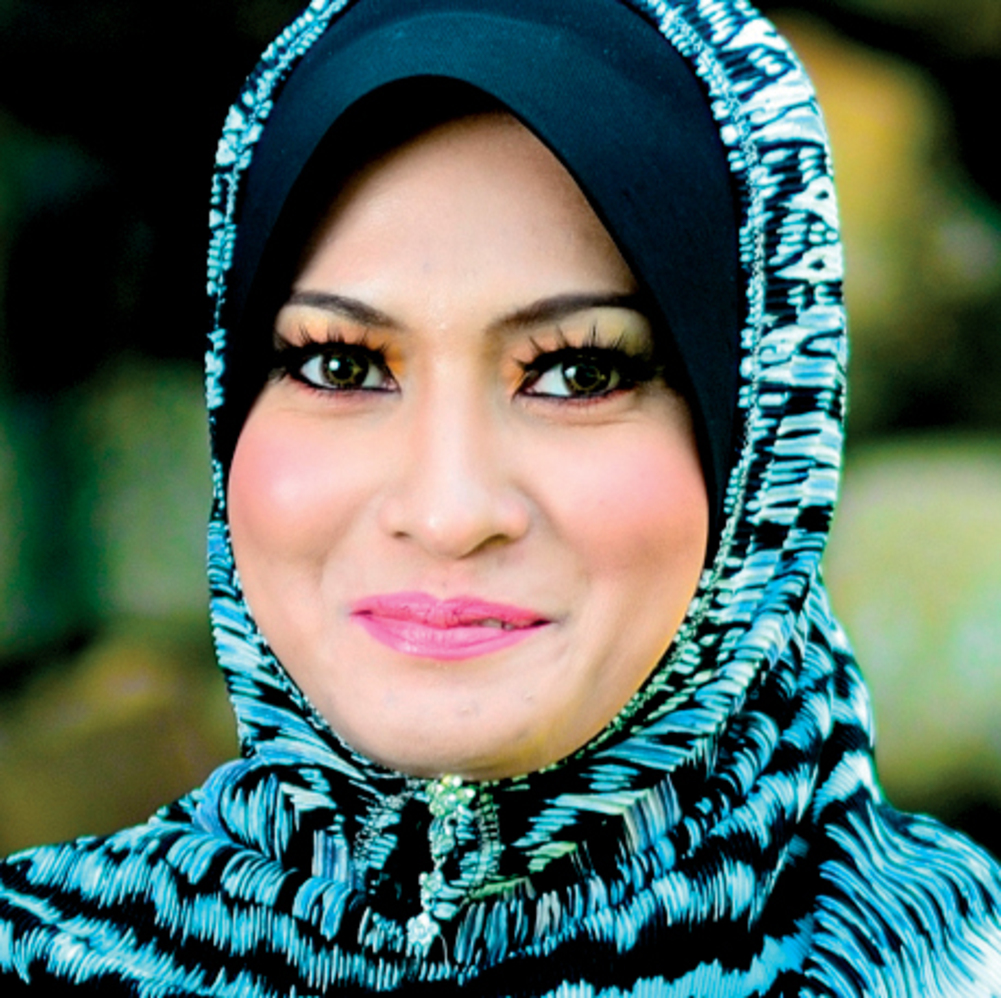NIGHT 52
THE TALE OF QAMAR AL-ZAMAN CONTINUES
“Wake, Sister! I’m worried about Qamar al-Zaman,” said Dinarzad.
“Yes,” said Shah Rayar. “I’m breathless with suspense.”
“Listen well, my dears,” said Scheherazade.

![]() he jinniya Maimuna stared at the youth. It would be easy to gnash him between her teeth. Her chest swelled eagerly. But then she curled her talons in. The youth’s beauty made her think of the Almighty’s glory. She flew off, dizzy with infatuation.
he jinniya Maimuna stared at the youth. It would be easy to gnash him between her teeth. Her chest swelled eagerly. But then she curled her talons in. The youth’s beauty made her think of the Almighty’s glory. She flew off, dizzy with infatuation.
Soon she heard the rapid beat of wings behind her. She swooped, hawklike. Snag! Struggling in her grasp was Dahnash, the stupidest of jinn, but in this moment he displayed cunning, for he pleaded in the name of the Almighty. Had he seen a vision of holiness in her face? “Mercy?” said Maimuna. “Maybe. But first, tell me where you’ve come from so fast.”
“Farthest China,” said Dahnash. “I will tell you of a wonder if you set me free with a note that says I am under your guardianship, forever safe from other jinn.”
Maimuna put her rat face in Dahnash’s birdie one. “Speak.”
Dahnash told of King al-Ghayur in China. He owned seven castles, one each of crystal, marble, iron, jewels, bricks and colored stones, silver, and gold. He built them for his daughter, Princess Budur. The princess was to live in each castle for a year, till she had lived in all.
Kings from near and far came to ask for the gorgeous princess’s hand in marriage. But Princess Budur wanted no man to rule her. Suitors rose to the challenge. After all, something won against the odds is a true treasure. The more suitors she rejected, the more suitors came.
King al-Ghayur pressed his daughter to marry. In anger, Princess Budur said, “Entreat me no further, or I will throw myself upon a sword.” The king drew back, aghast. Did she actually mean that? He closed her away in a room with 10 duennas—elderly ladies—as guards. King al-Ghayur announced that his daughter had gone mad and needed seclusion.
“That is where Princess Budur, the most beautiful human in the world, abides now,” said Dahnash. “At night I gaze on her loveliness.”
“Lovely, perhaps,” said Maimuna, “but she is not the most beautiful human. I have gazed upon the one who owns that title, earlier tonight.”
The jinn argued the point. In the end, they agreed that the only way to settle the debate was to see the youth and the princess side by side. They flew to the far China island and carried Princess Budur, so weary from prisoner-melancholy that she never woke. They lay her beside the youth and compared them from every angle. The jinni thought the girl more beautiful; the jinniya, the youth. Finally, Maimuna slapped the ground and out sprang a one-eyed, scabby, twisted jinni. Pus ran from his ears. Rats peeked from his beard. He drooled. “Qashqash, be judge. Which of these humans is more beautiful?”
Qashqash danced in his hobbley-gobbley way. “You must wake each in turn while the other sleeps, and see if one falls madly in love with the other. The one who does is, by logic, the less beautiful.”


In these tales, beautiful creatures are often presented as desirable and ugly creatures as horrible. This focus on external looks and emphasis on beauty was common in the medieval world, not just in the Middle East, but throughout Europe, and in many other times and places from the ancient world to today. Perhaps traditional notions of beauty were connected to ideas of health; that is, if you looked good and smelled good (with the help of perfume), maybe you were healthy—a reproductive and survival benefit.
The rising sun formed a halo around Shah Rayar, on his side looking at Scheherazade. His eyes were pools of warmth, inviting her to bathe in them. Scheherazade ran her fingers along that halo, coming close enough to stir the hair on his neck, shoulder, and arm but never touch his skin. “Who will win?” asked Dinarzad.“You’ll learn in the coming night. If it should please the king.” “Let’s desist with this ritual of questions,” said Shah Rayar. “I will announce when the tales have ended. Until then, continue each night, Scheherazade.” Until his announcement, yes—until then, life would go on. The future fell like wounded soldiers, looking up and waiting, helpless, with only one question on their minds: Would the next face to appear above them be foe or friend? 
![]()
Who was more beautiful, prince or princess? Qashqash posed a test of logic: The one who fell in love with the other was the lesser beauty.

